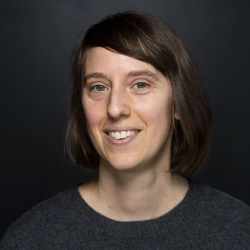
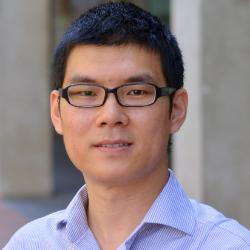
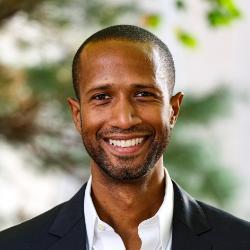
Joseph B. Keller is a tech policy researcher and Nonresident Fellow at the Brookings Institution. His research interests encompass the societal impact of emerging technologies and their policy implications for governance, security, and the environment. Most recently, he served as a visiting fellow at the Brookings Institution and an adjunct faculty member at Georgetown University. Prior to this, Joseph held positions as a senior director of congressional and federal relations for the American Psychological Association, an AAAS Science and Technology Policy Fellow at the National Science Foundation, and an executive search consultant in the civic sector. He earned a bachelor's degree in biological sciences from the University of Maryland, Baltimore County, a master's degree in computational neuroscience from Boston University, and a doctorate in cognitive science from the Massachusetts Institute of Technology.
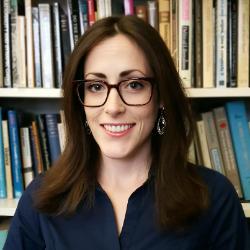

Maryam Khanbaghi is the director of Power Systems and Sustainable Energy Program and associate professor in the Department of Electrical and Computer Engineering. Before joining Santa Clara University, she was at Corning Inc. holding several positions in research, engineering and manufacturing. She created and led Corning’s first-ever advanced control group serving all Corning businesses with cutting-edge technology to improve quality while reducing costs. She also worked several years for Pulp and Paper Research Institute of Canada in Montreal and Vancouver as a research engineer where she worked on design and implementation of different estimation method and advanced control systems. She was awarded NSF CAREER award in 2023.
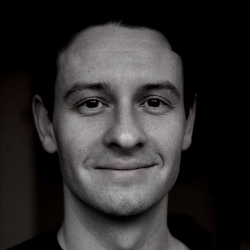
Konstantin Klemmer is a researcher in geospatial machine learning and a core team member at Climate Change AI. He has a Ph.D from the University of Warwick and has spent time as a researcher at NYU and most recently Microsoft Research.
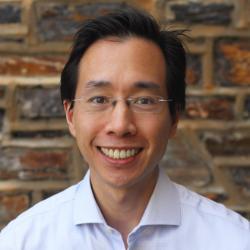
Benjamin C. Lee is a Professor of Electrical and Systems Engineering and of Computer and Information Science at the University of Pennsylvania. He is also a visiting researcher at Google in the Global Infrastructure Group. Dr. Lee’s research focuses on computer architecture (microprocessors, memories, datacenters), energy efficiency, environmental sustainability, and security. He builds interdisciplinary links to machine learning and algorithmic game theory to better design and manage computer systems. His research on environmentally sustainable computing, in collaboration with Harvard, received an Expedition in Computing award from the National Science Foundation in 2024. Dr. Lee was an Assistant and then Associate Professor at Duke University. He received his post-doctorate in Electrical Engineering at Stanford University, Ph.D. in Computer Science from Harvard University, and B.S. in Electrical Engineering and Computer Science from the University of California at Berkeley. He has also held visiting positions at Meta AI, Microsoft Research, Intel Labs, and Lawrence Livermore National Lab. Dr. Lee received the NSF Computing Innovation Fellowship, NSF CAREER Award, and Google Faculty Research Award. He is an IEEE Fellow and ACM Distinguished Scientist.
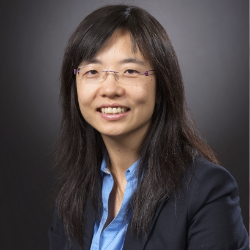
Yuhong Liu is Associate Professor at the Department of Computer Science and Engineering, Santa Clara University. Her research interests include responsible AI, trustworthy computing and cyber security of emerging applications, such as online social media, Internet-of-things and Blockchain. She has published over 90 papers on prestigious journals and peer reviewed conferences. She is currently serving as an Associate Editor of IEEE Transactions of Service Computing (TSC), Multimedia Tools and Applications (MTAP), APSIPA Transactions on Signal and Information Processing (TSIP), and a Youth EBM Editor of the Blockchain: Research and Applications Journal. She serves as an IEEE Computer Society Distinguished Visitor (2022-2024), and an APSIPA Distinguished Lecturer (2021-2022). She is the recipient of the IEEE Computer Society Technical & Conference Activity board Rising Star Service Award (2023), the 2019 Researcher of the Year Award at School of Engineering, Santa Clara University, the 2013 University of Rhode Island Graduate School Excellence in Doctoral Research Award, and the Best Paper award of the IEEE International Conference on Social Computing 2010 (acceptance rate = 13%).
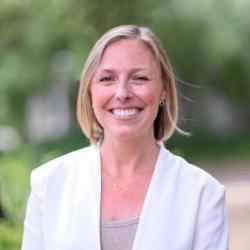
Betsy Popken is the Executive Director of the Human Rights Center at UC Berkeley School of Law. Betsy directs HRC’s Climate Justice program, leads a team conducting a human rights impact assessment and model evaluation of large language models, and spearheads HRC’s work on international peace negotiations, currently focused on Ukraine. Drawing from her real-world experience, Betsy teaches courses on Technology & Human Rights and International Peace Negotiations at Berkeley Law. Betsy is regularly interviewed by information and communication technology companies conducting due diligence to assess human rights risks. Previously, Betsy co-founded and co-led the Business & Human Rights practice at the law firm of Orrick, Herrington & Sutcliffe LLP, where she had a particular passion for helping clients tackle human rights issues raised by emerging technologies.
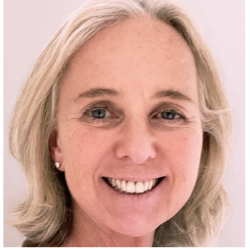
Helen Popper is a Professor of Economics who explores the economy and financial risk. Her recent work delves into climate change risk, AI risk, and central bank intervention in foreign exchange markets. Helen has collaborated with organizations such as the Federal Reserve, the Bank of Mexico, the World Bank and other international institutions; and she has become a trusted advisor on boards and committees, including the Markkula Center for Applied Ethics, the DIAGRAM Center, and the American Economic Association’s Committee on the Status of Women in the Economics Profession. She earned her Ph.D. from the University of California at Berkeley.
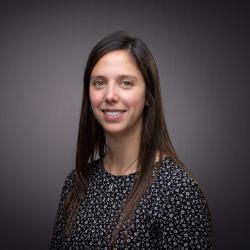
Rocio Lilen Segura is an assistant professor in the Department of Civil, Environmental and Sustainable Engineering at Santa Clara University. Prior to that, she obtained the Mitacs Industrial Postdoc Fellowship, to do her postdoc with Hydro-Quebec as an industrial partner. Her research focuses on the resilience of critical infrastructure, particularly dams and levees, against extreme events and climate change. She applies probabilistic methods to assess risks and promote infrastructure durability. Additionally, my work explores community resilience and climate justice, integrating built, natural, and social systems to address environmental challenges comprehensively.

Navid Shaghaghi is a lecturer and researcher in the departments of Computer Science & Engineering (CSEN). He also teaches a couple of courses in the department of Information Systems and Analytics (ISA) of the School of Business and has in the past taught for the department of Bioenginneering (BIOE) of the School of Engineering and the department of Mathematics and Computer Science (MCS) of the College of Arts and Sciences at Santa Clara University. His research interests are in Artificial Intelligence(AI), Automation, Technology for Education, Technology Ethics, Extended Reality, Internet of Things (IoT), Machine Learning (ML), sustainable Energy, and Web/Mobile technologies. Professor Shaghaghi currently manages 30 research projects and oversees over 150 research students and alumni in his Ethical, Pragmatic, and Intelligent Computing (EPIC) and Creative, Augmented, and Virtual Environments (CAVE) research laboratories as well as under his fellowship roles with the Frugal Innovation Hub (FIH) and the Healthcare Innovation and Design Lab at the university.

Hersh Shefrin holds the Mario Belotti Chair in the Department of Finance at Santa Clara University's Leavey School of Business. Professor Shefrin is a pioneer in behavioral finance. He has published widely in the area and writes for both academics and practitioners. Professor Shefrin regularly teaches behavioral finance to undergraduates and graduates. He often speaks on the subject to portfolio managers, security analysts, risk managers, and financial planners both in the U.S. and abroad. In addition, he is frequently interviewed by the media on financial matters, writes a regular blog for Forbes, occasional blogs for the Huffington Post and Vox, and can be followed on Twitter at @HershShefrin.
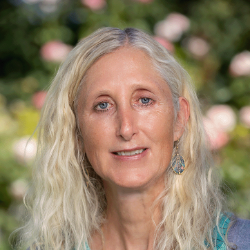
Iris Stewart-Frey is a Professor at the Santa Clara University Environmental Studies Institute and teaches courses in water resources, water security, spatial analysis, community-based research, and earth systems. Her research studies the impact of climate variability and change on water resources using models, and spatial & statistical analysis. She also uses a community-based approach to connect science findings to issues of justice in the distribution of environmental benefits and burdens. Professor Stewart-Frey is interested in interdisciplinary research and has collaborated with scholars from the fields of engineering, geography, ecology, and economics. Her research seeks to explain (i) recent and future impacts of climate warming on water resources, stream flows and temperatures, (ii) the impact of climate change across Central America and determinants for food and water security in the region, (iii) the role of climate, agriculture, laws, and infrastructure on water justice in Northern California, and (iv) the unequal distribution of environmental benefits and burdens in Silicon Valley with a focus on green spaces and roadway emissions.
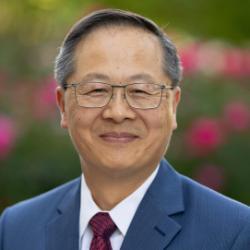
Tseming Yang, environmental lawyer, professor, and policy advocate has focused both on advancing understanding of the structure and role of the law with respect to the environment as well as how to ensure that effective implementation will contribute to the achievement of justice and sustainability. In addition to his work on domestic environmental law and its intersection with civil rights and social justice considerations, his other areas of research and writing have focused on environmental law in international treaties and in the law and governance systems of other countries, especially China. He is co-author of Comparative and Global Environmental Law (Aspen Publishing 2020) and co-editor of a forthcoming Handbook on Comparative Environmental Law (Edward Elgar).
